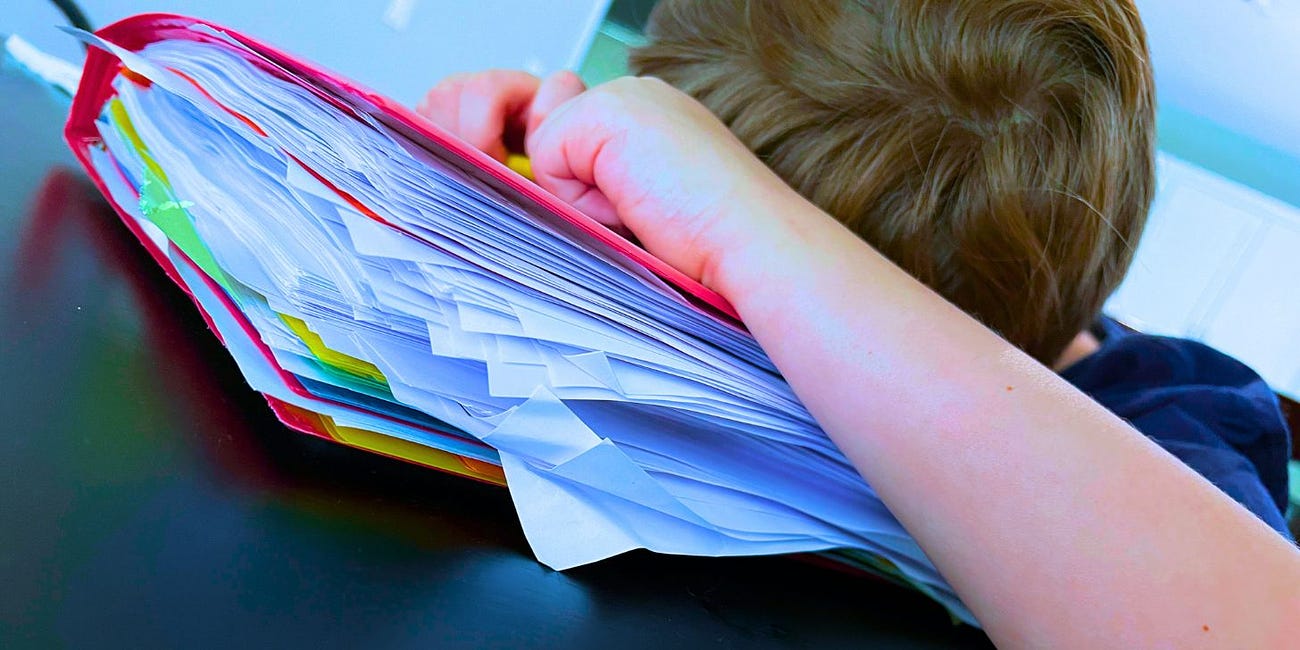Reprinted with permission from Jon Fleetwood
In this study published in the journal Clinical and Experimental Vaccine Research, patients “had no sleep disorders prior to taking the vaccine,” but half ended up suffering “excessive daytime sleepiness” after being injected.
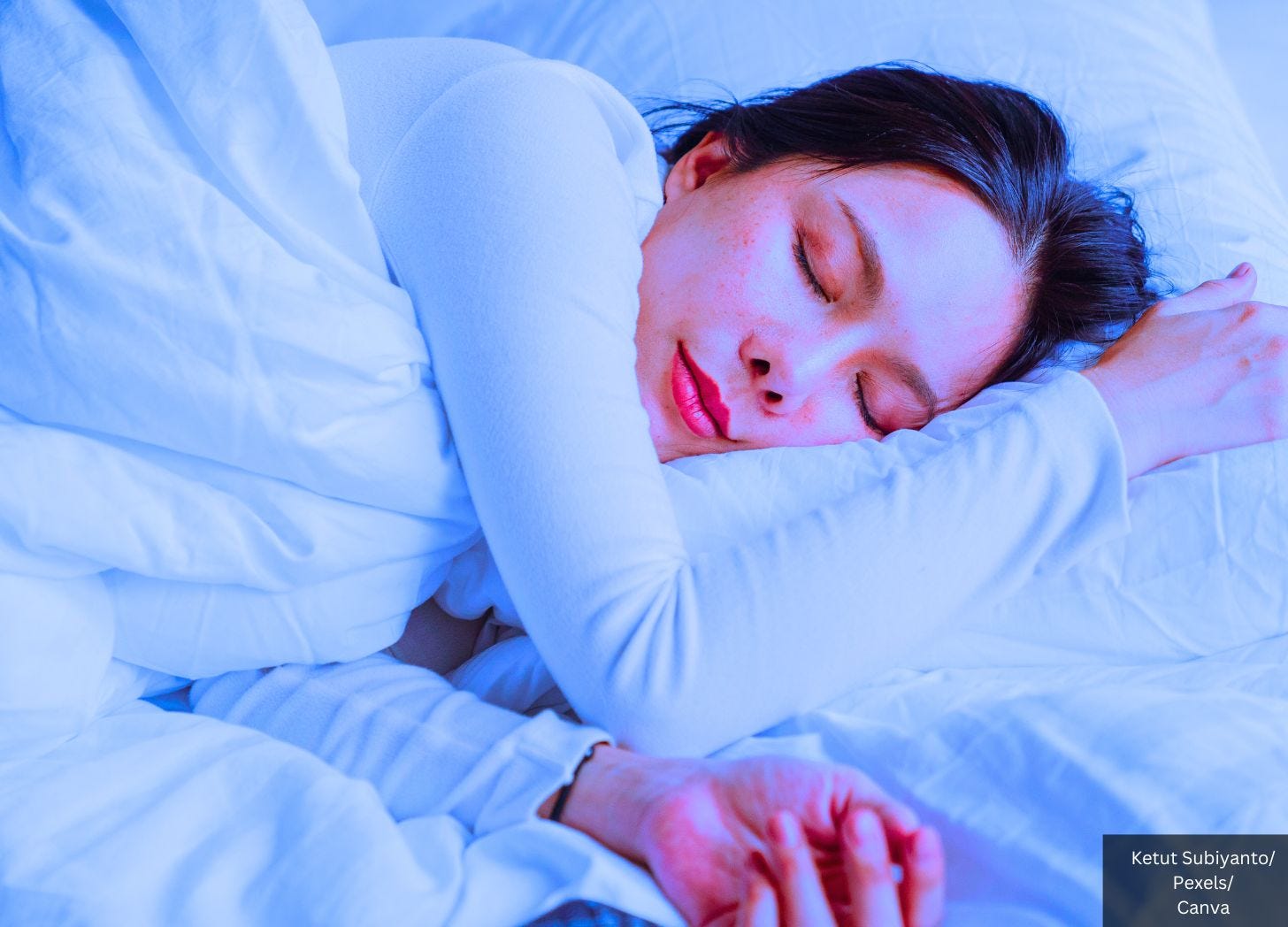
A new study published last month in the international, peer-reviewed, open-access journal Clinical and Experimental Vaccine Research confirms a link between the COVID-19 jab and narcolepsy, sleep paralysis, hallucinations, and repeated interruptions or awakenings during the night.
Narcolepsy is a chronic neurological disorder characterized by excessive daytime sleepiness and sudden, uncontrollable episodes of falling asleep.
It’s worth noting that Pfizer Inc.’s safety data—only made available by order of a Texas federal judge who denied the company’s plea to keep the data hidden for more than 75 years—show the company was aware by February 2021 that sleep disorders were linked to their COVID shot.
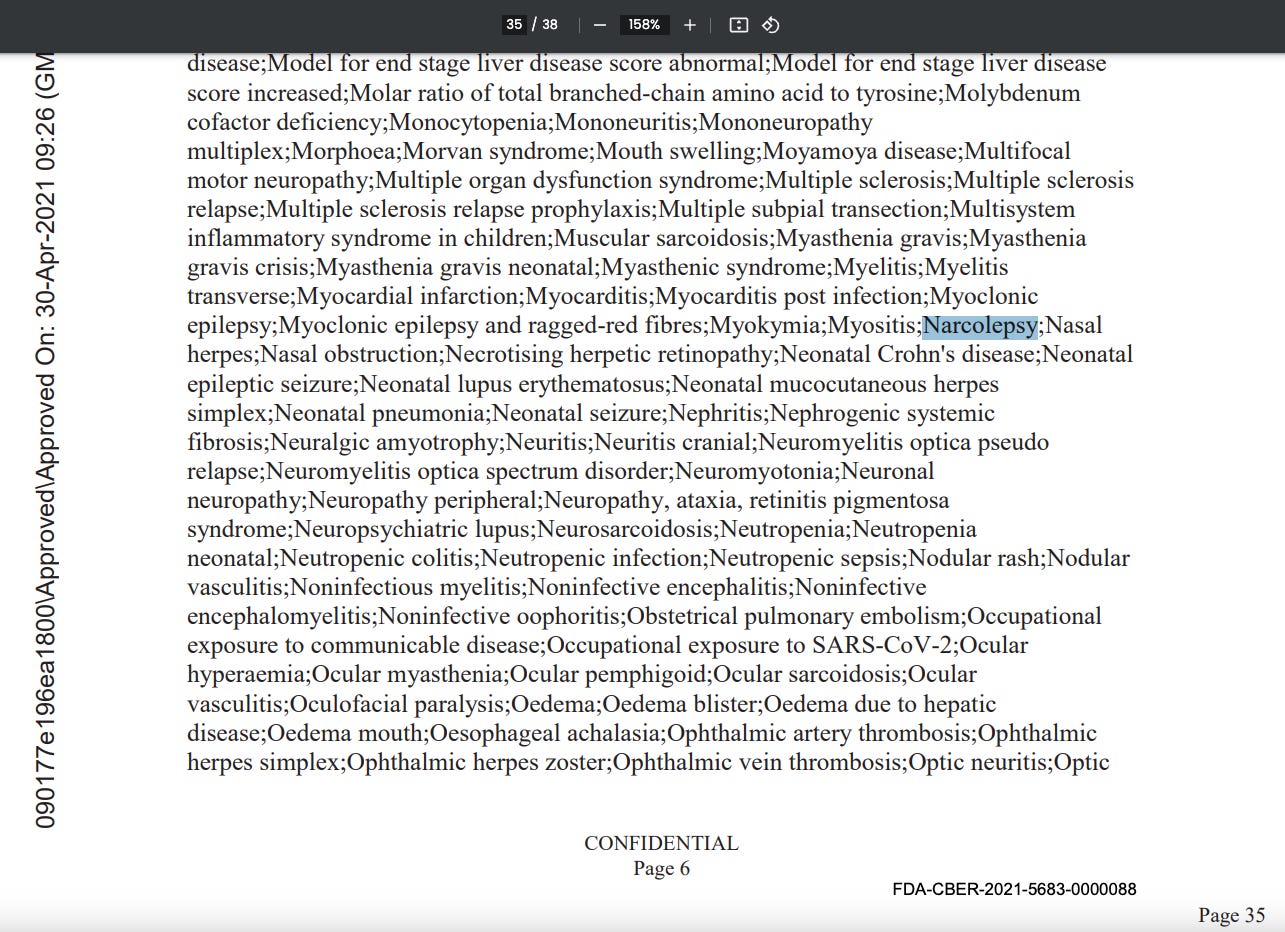
Screenshot from Phmpt.org taken August 15, 2024
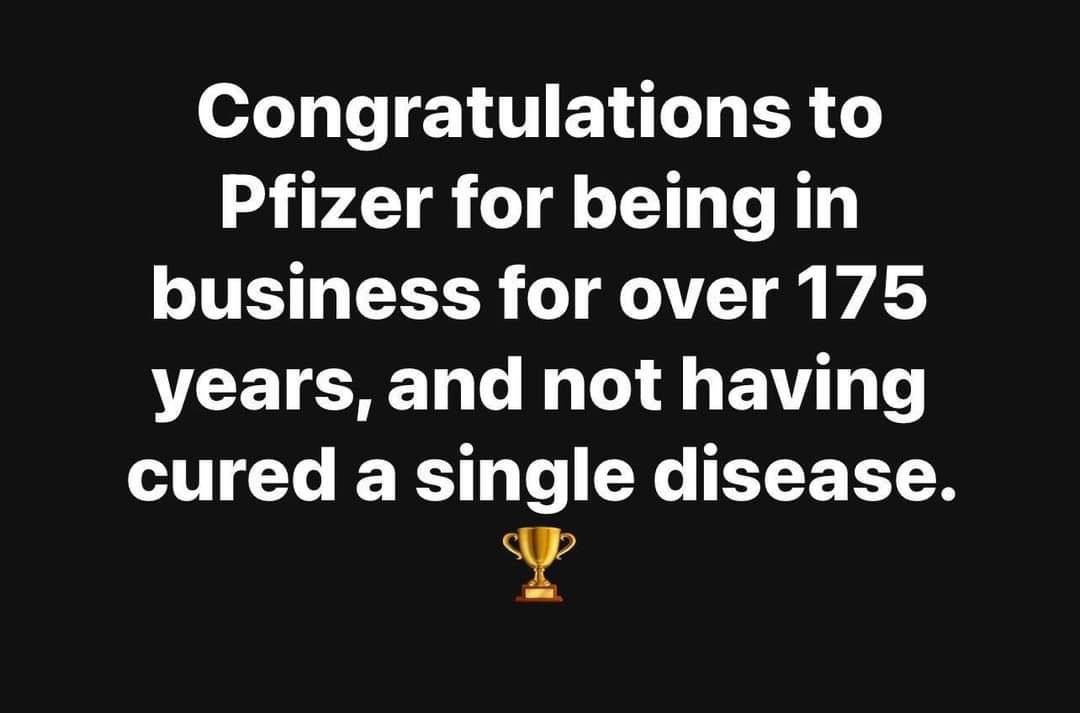
The new study used a descriptive, cross-sectional, online self-administered survey conducted between December 2022 and May 2023.
The survey targeted males and females above the age of 18 years who took any type of COVID jab and had no chronic diseases.
Significantly, patients “had no sleep disorders prior to taking the vaccine.”
A total of 873 participants were included in this study.
Most participants (79.8%) received two vaccine doses, the Pfizer shot being the most commonly administered (58.6%), followed by Sinopharm (28%), AstraZeneca (6.3%), and a mixed vaccine regimen (7.1%).
Most participants (68.8%) had received their first dose more than a year ago, while 25.7% received it within 7–12 months, and 5.5% received it within 6 months.
Significantly, nearly half of the participants reported excessive daytime sleepiness.
“Approximately half of the participants (48.7%) reported experiencing excessive daytime sleepiness,” the study reads. “Among those with excessive daytime sleepiness, the distribution of vaccine types taken showed a slightly higher prevalence of Pfizer (50.6%) and Sinopharm (48.8%) vaccines.”
Two in 10 participants reported experiencing sleep paralysis (20.4%) and hypnagogic hallucinations (15.7%).
Additionally, sleep attacks (suddenly becoming overwhelmingly sleepy) were reported by 25.1% of the participants.
Those experiencing sleep attacks showed a slightly higher prevalence of Pfizer (27.5%) and Sinopharm (25.4%) jabs.
Finally, fragmented nighttime sleep was reported by 42.3% of the participants.
Those with fragmented sleep showed a higher prevalence of Pfizer (44.9%) and Sinopharm (43.0%) shots.
The study authors believe the COVID vaccine is possibly to blame for these sleep disorders, confirming their findings “revealed a notable occurrence of narcolepsy symptoms among vaccinated individuals.”
“We hypothesize a possible link between COVID-19 vaccination and the emergence of narcolepsy symptoms in Jordanian individuals,” they write.
“In our study, we observed a concerning incidence of narcolepsy symptoms following COVID-19 vaccination. These findings are significant and warrant further investigation into the potential association between COVID-19 vaccines and narcolepsy.”
You can download the full study at Jon’s substack here.

The findings raise questions about the necessity and toll of government-mandated pandemic measures.
The study points out how the COVID-19 pandemic “tremendously disrupted societal behaviors and norms.”
“People had to cope with new situations, including restrictions on free movement, home confinement, and school closures, among others,” the study authors write. “With less scope for physical classes, online classes became rampantly common during and after the pandemic.”
The researchers lament how a virtual learning platform many were forced to use during the pandemic “cannot replace the societal learning and preparation of children that normally occurs in school settings.”
The pandemic therefore waged “a multifaceted impact on children, disrupting their routine work, social life, and mental health.”
The study authors pointed to “stringent public health measures” implemented during the pandemic as the cause of these problems.
These measures included “complete lockdowns, school closures, and movement restrictions.”
“A change in daily routines, such as going to school, has been shown in several studies to potentially deprive children of their ability to develop social skills and emotional resilience,” the authors write.

“Furthermore, unhealthy lifestyle practices such as reduced physical activity and increased screen time can adversely influence mental well-being.”
These changes led to an “increase in anxiety, depression, insomnia, and other emotional difficulties among children due to lack of social life and disrupted education.”
Since the circumstances were “bound to interfere with their emotional well-being, with long-term consequences,” the authors contend it is “imperative to screen for the effects of the pandemic situation among children for timely action.”
Caregivers of 621 children aged 6-17 years were interviewed in person, and sociodemographic, personal, and behavioral details were collected.
The ‘Strengths and Difficulties Questionnaire-25’ (SDQ-25) parent (caregiver) survey was used to evaluate emotional and behavioral difficulties during the pandemic.
The study found 101 (16.3%) children aged 6-17 years were likely to have emotional and behavioral difficulties according to the SDQ scores.
Abnormal externalizing, internalizing, and prosocial scores were documented among 160 (25.8%), 258 (41.5%), and 285 (45.9%) children, respectively.
Caregivers reported disruptions in their children’s academic performance (426, 68.6%), sleeping patterns (269, 43.3%), and eating habits (256, 41.2%).
The use of digital devices for noneducational purposes was reported among 97 (35.9%) children.
Abnormal scores were more common among children of younger caregivers (18-45 years), children who used digital devices for >2 hours per day, children who experienced any death due to COVID-19 in their family, and caregivers who perceived that the psychological changes in their children were due to the pandemic.
Significantly, physical activity for more than two hours per day reduced the risk of emotional and behavioral difficulties in children by 60%.
The authors conclude by emphasizing the need for initiatives promoting mental well-being and preventive screening for vulnerable populations.
“This research underscores the potential ramifications of the pandemic on the mental well-being and lifestyle of children,” they write. “Implementing initiatives that promote positive mental health and conducting preventive screening for vulnerable populations, such as children, are considered essential, anticipating the challenges posed by such unprecedented pandemic circumstances in the future.”
Download the full study at Jon’s substack here.
Read all Jon’s work at The Tenpenny Report here.
++++++++++++++++++++++++++++++++++++++++++++++++++++++++++++++++++
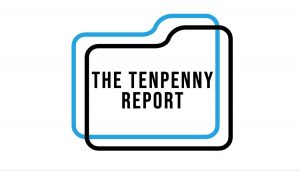 Like what you’re reading on The Tenpenny Report?
Like what you’re reading on The Tenpenny Report?
Share this article with your friends. Help us grow.
Get more of Dr. Tenpenny’s voice of reason at her website.
Join our list here
Make a donation here (and thank you!)
++++++++++++++++++++++++++++++++++++++++++++++++++++++++++++++++++
Jon Fleetwood reports on hidden news and peer-reviewed journal articles to challenge mainstream health narratives. You can read his work on Substack.Share Jon Fleetwood and follow Jon Fleetwood on Instagram @realjonfleetwood / Twitter @JonMFleetwood.


